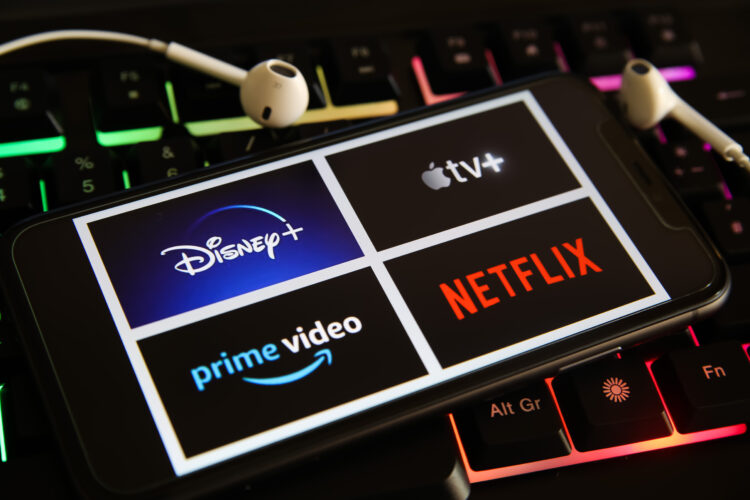Streaming services set to be regulated in UK by Ofcom

Streaming services like Netflix, Amazon Prime, and Disney+ will come under Ofcom’s regulatory remit for the first time under new Government proposals to “protect audiences from harmful material”.
The government’s broadcaster White Paper proposes a range of measures to ensure TV broadcasters have a public-service remit fit for the digital age, while pressing ahead with the sale of Channel 4.
In a wide-ranging policy document on broadcasting, the Department for Digital, Culture, Media and Sport, outlined proposals to proceed with the privatisation of Channel 4 and to usher in a “new golden age” of British TV to help the nation’s public service broadcasters thrive.
However, it also been heavily criticised by Radiocentre, the trade body for commercial radio, for not proposing solutions for broadcast radio.
Most video-on-demand services (VOD) are not currently subject to the regulator’s Broadcasting Code like linear TV channels and the proposals mean VOD platforms including ITV Hub and Now would be affected.
Ofcom would have the power to draft and enforce a new “VoD Code” meaning streamers would be subject to more rules with the aim of “levelling the playing field”.
The maximum fine for a breach of this code was set at £250,000 or up to 5% of an organisation’s revenue, whichever is larger, the white paper revealed.
Culture Secretary Nadine Dorries said: “The UK’s TV and radio industries are world-renowned for their creativity, driven by exceptional talent that is delivering ground-breaking public service programming.”
“Set against the backdrop of the digital transformation of our viewing habits, today’s plans will revamp decades-old laws to help our public service broadcasters compete in the internet age,” she added.
The statement continued by highlighting Channel 4’s transition from traditional to online advertising revenues and its contributions to national and regional economies.
Channel 4 is currently publicly owned but commercially funded, and plans to privatise it have been criticised by advertising industry trade bodies ISBA and the IPA.
In particular, its Future4 strategy delivering significant investment to independent companies outside London and a national skills and training programme helping more than 15,000 young people this year.
A Channel 4 spokesperson said: “Channel 4 is a thriving national asset with a business model that has never been in better health. The last two years have seen revenues reach record levels, and unlike other broadcasters, Channel 4 has no debt.”
It added: “With a strong and successful content strategy, and as a publisher-broadcaster, Channel 4 commissions all of its content from external production companies from across the UK. Channel 4 invests more in independent production companies outside London than any
other broadcaster, and through this, supports thousands of jobs in the nations and regions.”
Prominence rules on connected devices
The government also plans to provide prominence to broadcasters’ content on connected devices and online platforms through new legislation.
This law would apply to devices such as smart TVs and set-top-boxes and platforms like BBC iPlayer, ITV Hub, All 4 and My 5.
There are also intentions to change digital broadcast rights for major sporting events like the Olympic Games, the men’s World Cup finals, men’s FA Cup final, Grand National and Wimbledon singles finals.
Radio ‘left out in the cold’
However Radiocentre CEO Ian Moss heavily criticised the White Paper for “ignoring” problems that the radio industry faces that are similar to TV broadcasting.
Moss said: “There is cross-party support for rules guaranteeing prominence and access to radio without interference and we would urge the Government to reconsider.”
“We are incredibly disappointed that the recommendations from the DCMS Digital Radio and Audio review for radio to be protected from tech platforms, have been ignored by Government.”
Read our full statement on new Broadcasting White Paper: https://t.co/g0jqj85bNR pic.twitter.com/n3pAGir4H7
— Radiocentre (@Radiocentre) April 28, 2022
The statement from Radiocentre also said recommendations for commercial radio to be protected from tech platforms have been ignored by Government.
Not only that, but the trade body went as far as to say commercial radio and BBC radio are being “left out in the cold’, which is putting the industry at a disadvantage.
It said it was “disappointing” the Government recognises the importance of legislation for television but not for radio and that it appeared to have “reneged on its commitment” to protect BBC radio and commercial radio broadcasters.
A cross-party group of MPs today backed calls for legislation to be introduced to guarantee access to UK radio stations on digital platforms like smart speakers in future.




